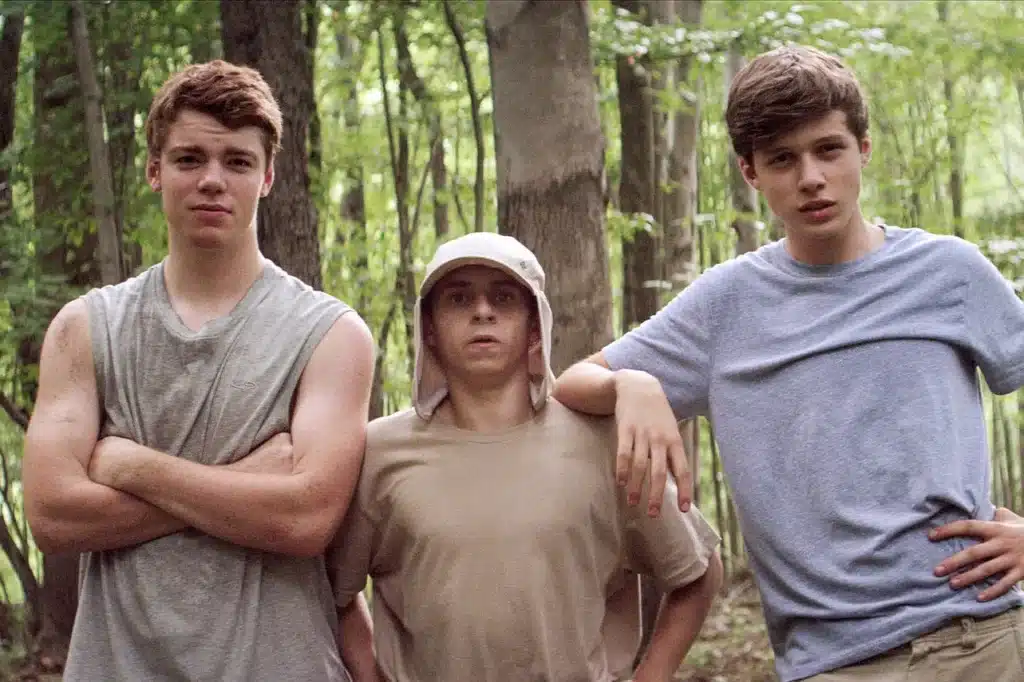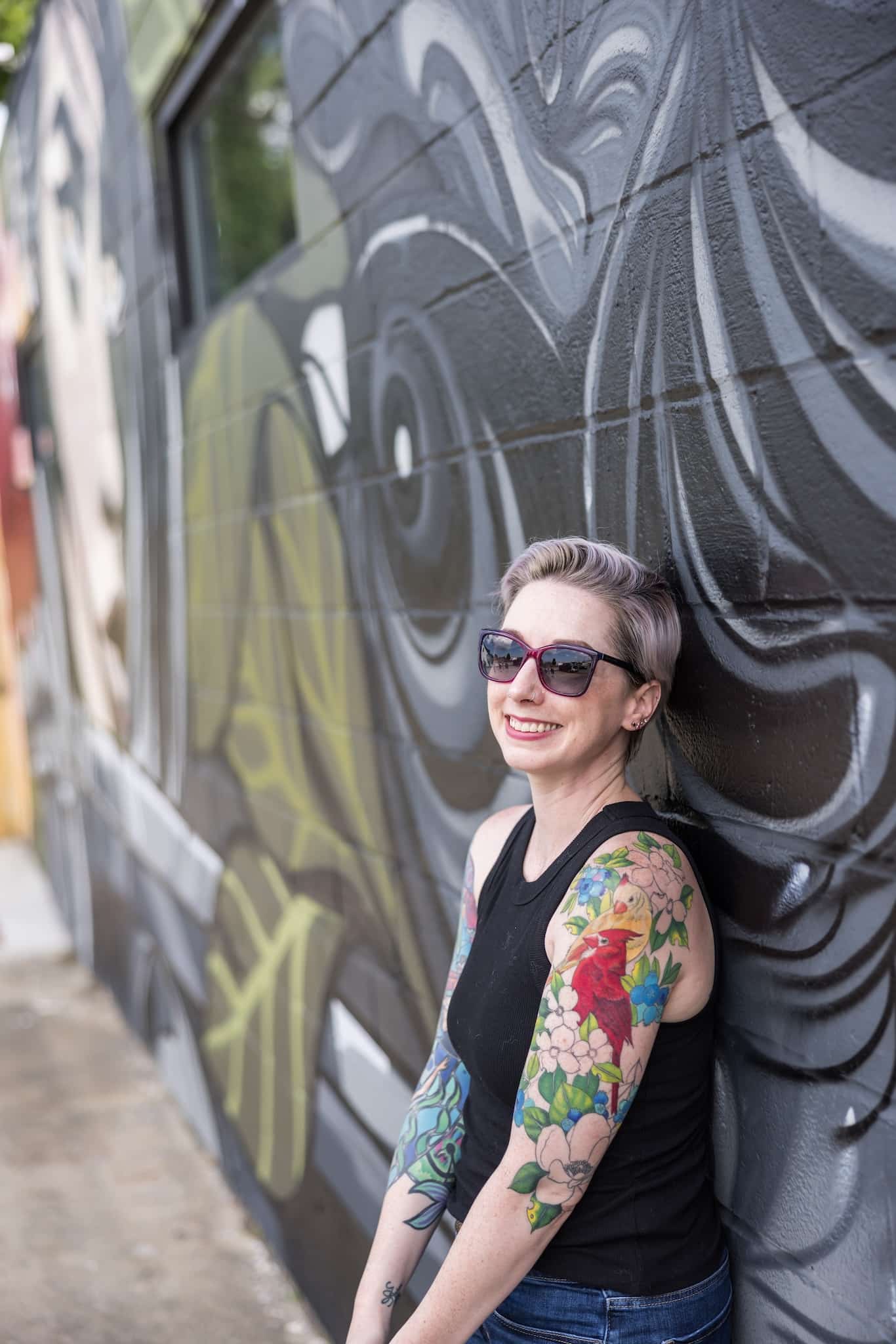
Introduction
Chelsea Williams is a filmmaker who represents the next generation of creatives redefining the art of storytelling. A recent film studies graduate, Chelsea’s journey began not in a traditional classroom but on YouTube, where she taught herself video editing, scene transitions, sound effects, and more. Her perspective — that film school isn’t the only path to success — offers a refreshing take for aspiring filmmakers without access to institutional education.
While many aspects of filmmaking remain timeless, the journey to becoming a filmmaker has evolved dramatically. Gone are the days when formal education was the only gateway to learning editing or crafting stories — now, with a camera in hand and resources at your fingertips, you can simply get out there and create. Chelsea Williams embodies this shift, confirming that modern tools and self-taught skills can open doors once thought closed.
Her passion for coming-of-age stories and her thoughtful advice resonate deeply with anyone navigating their own creative path. In this interview, Chelsea shares her insights into her creative process, her influences, and what drives her as a filmmaker.
Whether you’re a writer, filmmaker, or someone with a passion for creating, Chelsea’s story will inspire you to take the leap and start where you are.
Q: Can you start by telling us a bit about yourself and how you got into filmmaking?
Chelsea Williams: Sure! I’m a recent film studies graduate, and right now, I write and direct narrative shorts. I’ve also been diving more into documentary filmmaking. I’m really fascinated by coming-of-age stories — not just for teens but for people at any stage of life. I love exploring characters’ perspectives and seeing the world through their eyes.
I actually started making YouTube videos when I was around 10. I made skits, lifestyle videos, and other fun projects with my sister. Editing those videos taught me so much about storytelling. Eventually, I realized I could turn this passion into a career. That epiphany led me to pursue film school and commit to filmmaking.
Q: You mentioned YouTube as your starting point. How do you think that shaped your filmmaking skills?
Chelsea Williams: Editing YouTube videos taught me how to build a narrative in post-production. That skill translates directly to screenwriting and filmmaking. For example, in documentary work, the story often comes together after shooting—you’re piecing together moments to create a cohesive narrative.
YouTube also gave me a sense of creative freedom. I learned by doing, experimenting with techniques, and figuring out what worked. It’s such a great starting point because you can learn so much without needing expensive equipment or formal training. It set me up with a strong foundation before I even got to film school.
Q: Speaking of film school, what was the biggest thing you learned there — and do you think it’s necessary for aspiring filmmakers?
Chelsea Williams: Honestly, I don’t think film school is necessary. The biggest advantage is the network you build — your peers and professors can open doors and help you find opportunities. But a lot of successful filmmakers didn’t go to film school.
For me, the most valuable thing I gained was a strong understanding of film theory. But in terms of practical, real-world skills, much of that came from outside the classroom. The beauty of today’s technology is that filmmaking isn’t as gatekept as it used to be. You can shoot a film on your phone, edit it on free software, and share it online. There are so many resources now that make it possible to learn and grow without institutional education.
Related reading you might love: 28 Years Later: Danny Boyle’s New Zombie Flick Was Shot on an iPhone 15 || Wired
Q: That’s such an encouraging perspective. What advice would you give to someone who wants to break into filmmaking but can’t afford film school?
Chelsea Williams: Just start creating. It doesn’t have to be perfect — the goal is to practice and build your skills. Film everyday moments, experiment with editing, and put your work out there. Social media and platforms like YouTube or TikTok are amazing for getting your work noticed.
Also, carry a notebook or use your phone to jot down ideas. I’ve found that observing people in real life — the way they walk, their habits, their quirks — can make your characters feel more real. Those little details are invaluable when you’re writing scripts or directing actors.

Q: You’ve said you’re drawn to coming-of-age stories. What inspires you about that genre?
Chelsea Williams: Coming-of-age stories feel authentic to me because I can draw from my own experiences. Writing from what I know makes the narratives feel grounded. But I also love that coming-of-age isn’t limited to a certain age group. It’s about growth, change, and self-discovery, which can happen at any stage of life.
For example, I’m working on a short film right now that focuses on this theme. I’m also exploring ways to bring coming-of-age arcs into commercial projects, blending personal growth with storytelling even in shorter formats.
Q: Do you have a favorite coming-of-age film?
Chelsea Williams: Oh, definitely. One of my favorites is The Kings of Summer. It’s about three boys who run away to live in the woods, escaping their real-life problems. It has great character arcs, a beautiful soundtrack, and was shot so well. Watching that film was a pivotal moment for me — it made me want to direct movies.

I also love Frances Ha, which is more about coming of age as an adult. It’s about navigating career choices, friendships, and the feeling of being left behind. That kind of story reminds us that growth doesn’t stop after your teens or twenties.
Q: What do you hope to achieve in the next five years?
Chelsea Williams: Ideally, I’d like to be a commercial director full-time, pitching concepts and creating narrative-driven ads. But I also want to keep working on narrative and documentary films. Balancing commercial projects with personal ones feels like the best way to stay creatively fulfilled while maintaining steady work.
Plan your next commercial project with Celtx
Q: Finally, what advice would you give to someone struggling with self-doubt or fear of failure in creative work?
Don’t let fear stop you from putting yourself out there. Art is vulnerable, but it’s worth sharing if you believe in it. Not everything will work out, and that’s okay. Failure is part of the process — you learn, you grow, and you try again.
I always remind myself that there’s time. You don’t have to have everything figured out right now. Keep creating, keep learning, and trust that every step is bringing you closer to where you want to be.
Conclusion
Chelsea Williams’ journey from YouTube editor to filmmaker is a testament to the accessibility of modern filmmaking. Her advice to start where you are, embrace imperfection, and create fearlessly is an inspiration for aspiring creatives of all ages.
Chelsea’s story also highlights the transformative power of storytelling — how coming-of-age narratives can resonate at any stage of life and how modern tools make the art of filmmaking more accessible than ever. Her belief that failure is a stepping stone and her encouragement to observe the world around you remind us all that creativity is everywhere if you’re willing to look.
For those taking their first steps into the world of filmmaking, Chelsea’s insights show that talent and determination can transcend barriers, proving that the most important thing is to simply begin. Whether you’re scripting your first idea or polishing a project, Chelsea’s journey serves as a beacon for creators forging their own paths.
We’re excited for what the future holds for both Chelsea and other young filmmakers.
While Celtx connected with Chelsea on TikTok, you can also follow her journey on her website.
Explore more interviews with storytellers and filmmakers:
- Umar Turaki On Filmmaking, Writing, and His New Novel
- From Tunes to TV: An Interview with Comedy Writer Trevor Risk
- C.J. Spataro on Writing, Teaching, and Bringing Love to Life on the Page
